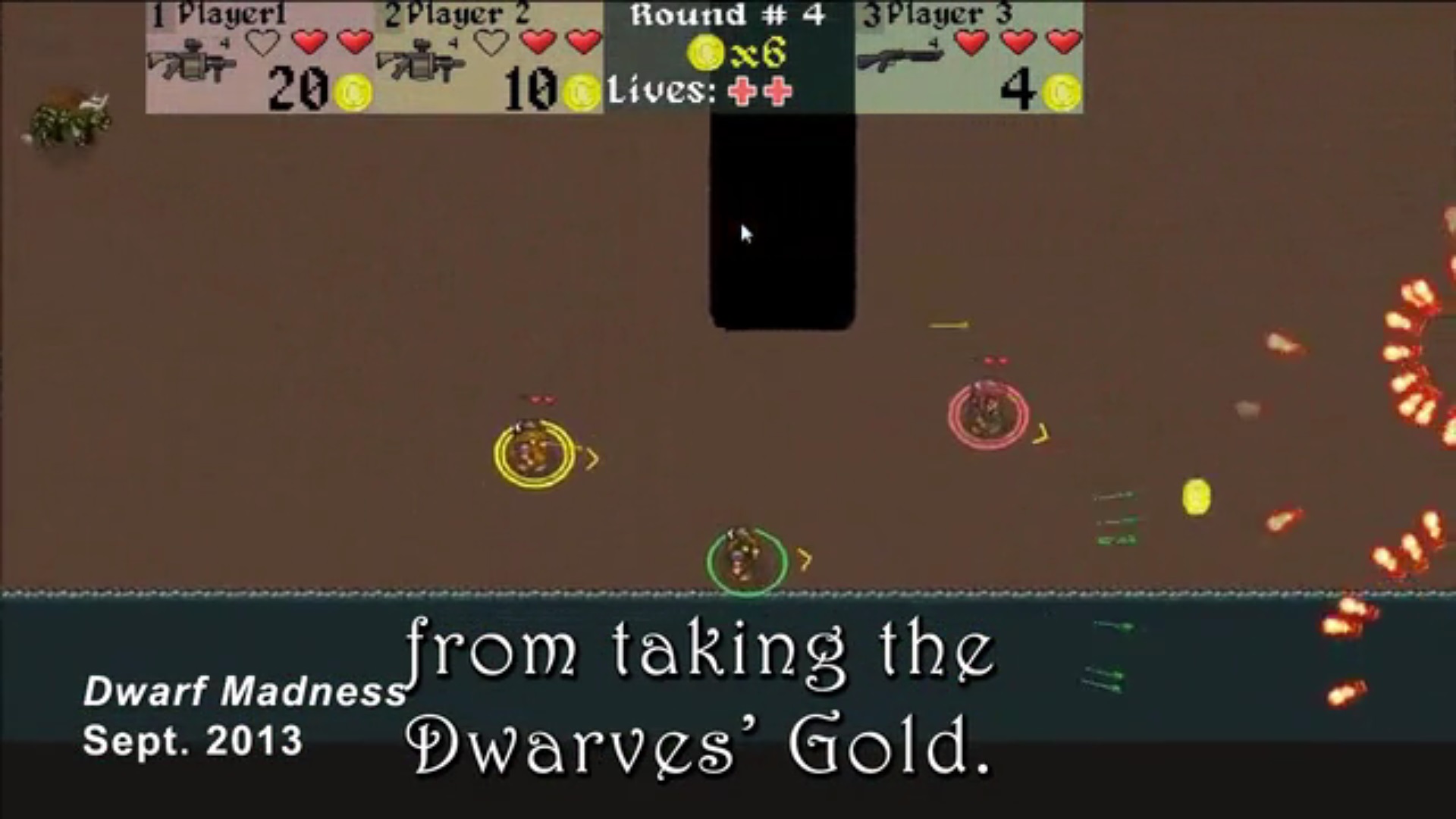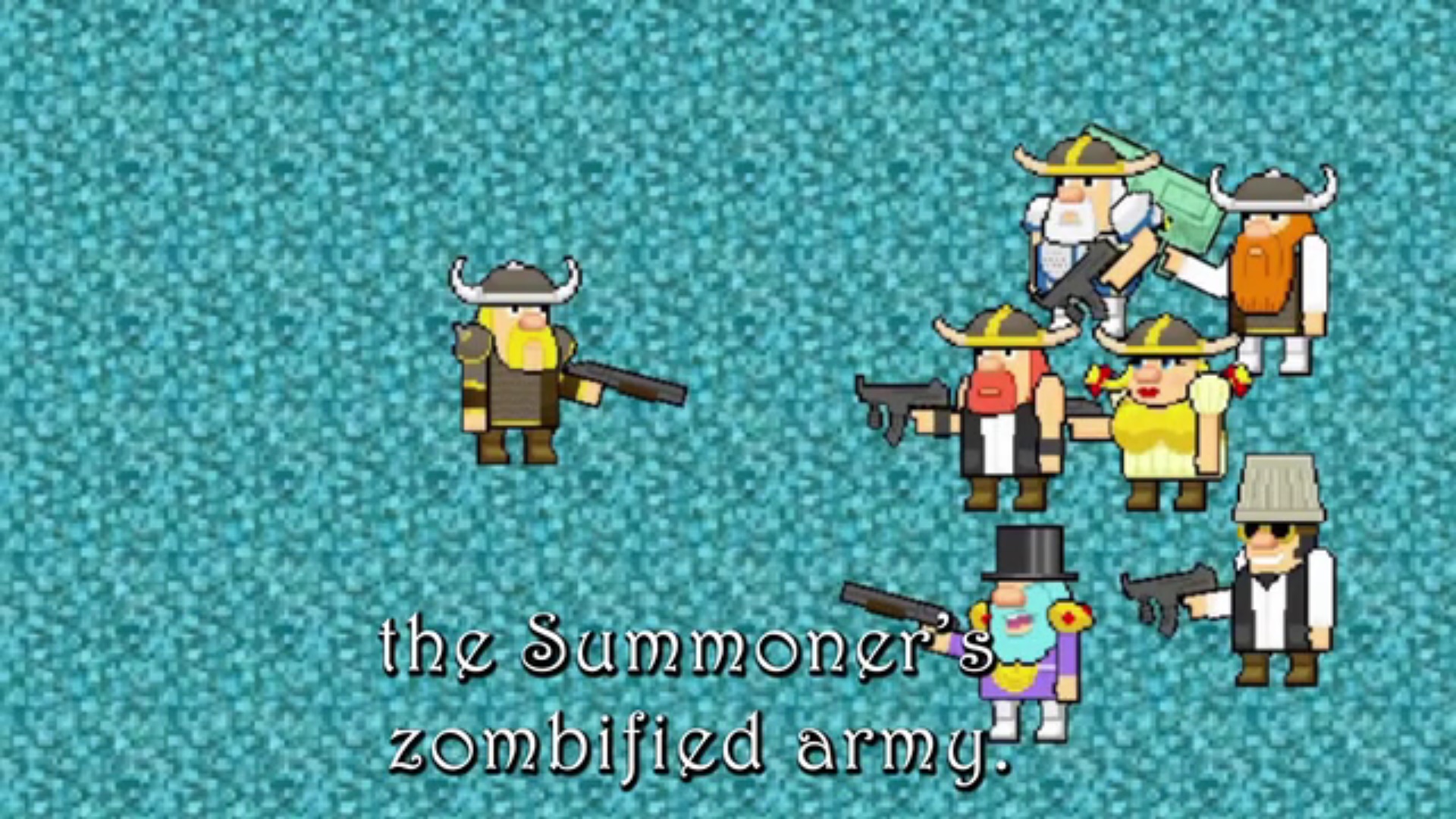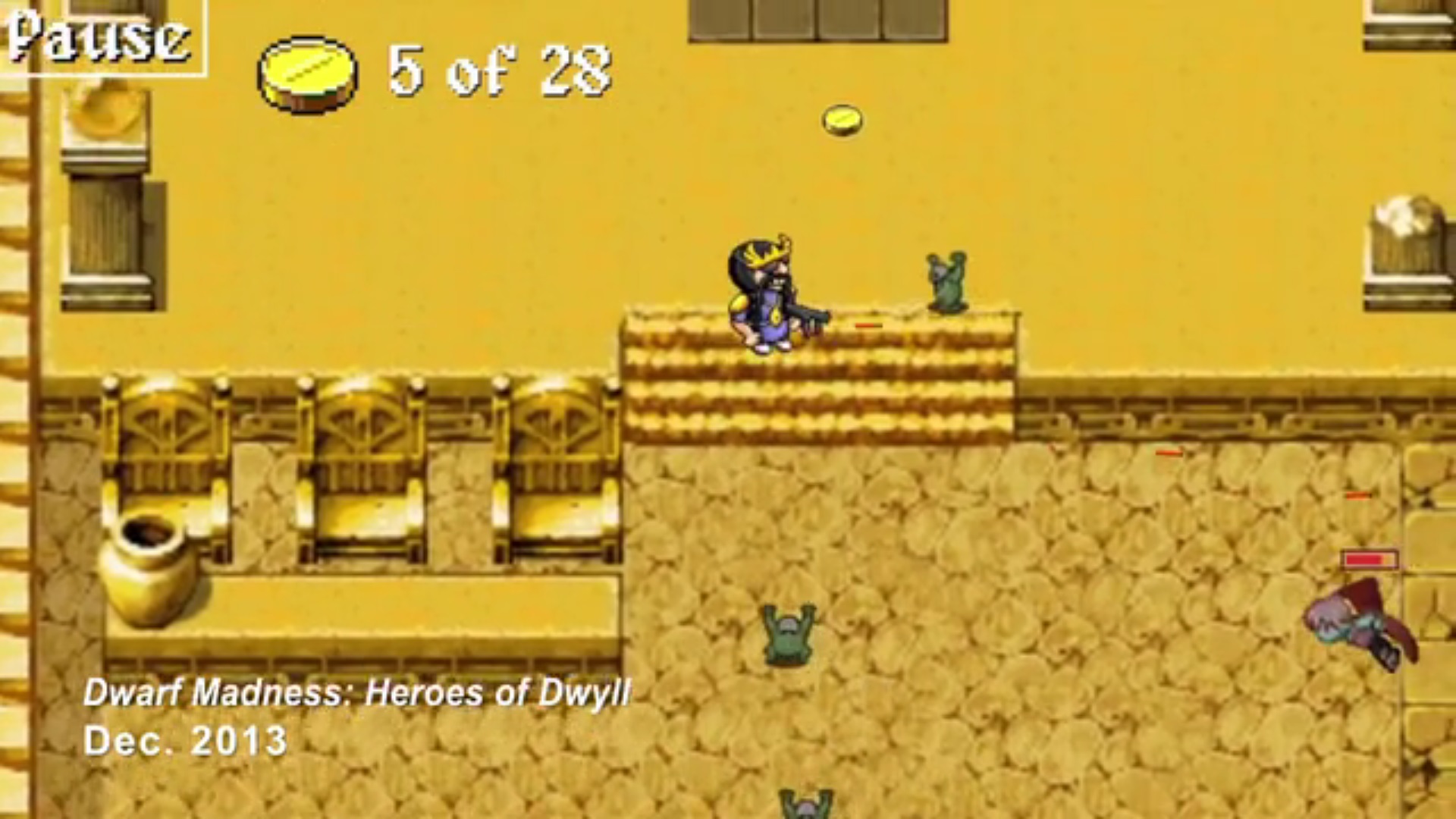It was supposed to be a fun, light-hearted online shooter. Instead, Super Dwarf Madness has turned into yet another dead and forgotten Kickstarter game. Receiving its last update in April 2015, many backers (at least, those that even remembered donating) assumed the project was dead. Those fears were confirmed to be somewhat true earlier this week, when a year later, the Hobbit inspired shooter got a new update.
Developer Callen Shaw posted a lengthy update detailing the game’s progress over the last year, what he’s been up to personally, and more importantly the status of the game. It’s a long post that goes into a lot of detail, but the gist of it is that Shaw and his small team ran out of time and money and have accepted other jobs for the time being. Super Dwarf Madness is going on hiatus for now, but it’s not dead.
Most of its stuff you’ve likely heard before: the developer needed to pay the bills, worked on contract work, worked on other games, and helped their other indie developer buddies. You can read the update in full on the SDM page if you’re interested.
There is a bit of unique twist though. Super Dwarf Madness was part of the Free the Games Fund run by Ouya Inc. Another Kickstarter project, the Ouya was a micro-games console that was meant to be the go to place for independent developers. Part of this idea was the formation of the Free the Games Fund, which would give an equal amount of money raised by a successful videogame Kickstarter in exchange for six months of exclusivity.
The Ouya was an unmitigated disaster however, and Ouya Inc. went into debt just three years after launch. The console was sold to Razer, who immediately ceased the Free the Games Fund, leaving the developers relying on it out in the cold.
After public pressure, Razer partially reversed their decision. Their new plan would be to buy as many copies of games as it would take to equal the amount of money developers were originally promised. Razer would then freely distribute the games across their various devices. For Super Dwarf Madness, that would have been 500 copies freely given away. It would have been huge for an online game as Shaw points out, as they live or die by the size of their community.
However Razer wanted Shaw to sign a contract with stipulations he didn’t like. This included things like a total nondisclosure agreement, the right to “assign [the game] to any affiliates, without reference to the developer,” and for any contract disputes to go through courts in Singapore.
Shaw claims he hammered out the contract, not directly with Razer, but with Ouya Inc. acting as a middleman. Eventually, he got them to bend and deliver a better contract, which he signed. After weeks waiting for Razer’s signature, they decided to scrap it and offer him the original contract again, which he declined.
It’s a fascinating read on what it’s like to work with publishers, especially in such a bizarre and unfortunate circumstance. Shaw absolutely made mistakes by taking a year to post any updates and by working on other games when he should have spent that time on Super Dwarf Madness. He shouldn’t have needed the extra $10,000 for development either, as the Kickstarter should have funded the game, with any extra features either cut or reworked to fit in the budget. It’s not uncommon to see developers expanding their scope beyond viability, and this seems to be no different.
Still, whether he should have needed the extra money or not, having $10,000 suddenly ripped away and a massive partner go bankrupt is tough for anyone.
While the game hasn’t been fully canceled, it’s hard to see it ever coming out. Shaw says he’s seeking to self-fund the rest of the game, and that backers will soon get a pre-alpha build, but when any of that will happen remains a mystery. Judging from some of Shaw’s comments, it doesn’t sound like development has gotten very far in the two years since it’s been funded.
“I have an idea for what Super Dwarf Madness will look like in its final form. I’ve really enjoyed playing the 3DS title Zelda: Tri Force Heroes, and will take a lot of inspiration from its simple drop in / out online play. I would also love to include some of the puzzles that game includes. It will be difficult to pull this off within randomly-generated maps – but not impossible.
“Other details, however, like the total size and scope of the world, will depend on what kind of resources I can collect. Besides the remaining enemies, environments, and world features, I’ll also need to add character animations for various special abilities and melee attacks. All of this will require a re-estimation of the game’s budget, which in turn requires my finances to be in order.”
Those are quite a lot of ideas and things that still need implementing, considering he doesn’t know what the budget for the game will look like in the future. It makes you wonder where the initial $10,000 went, doesn’t it?







[…] discussed this fund in greater detail in the past. The Free the Games Fund was a program ran by Ouya Inc. to match funding of successful campaigns for development. After it […]